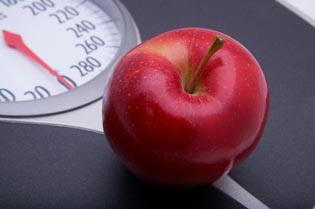 Christian women are not immune from body image issues. Science writer Denyse O’Leary challenges us to find a new way to deal with our “how much do I weigh now?†obsession.
Christian women are not immune from body image issues. Science writer Denyse O’Leary challenges us to find a new way to deal with our “how much do I weigh now?†obsession.
Cathy, the beloved goofy girl of cartoon strip fame, used to sigh, “Wake me up when I’m a size 5.†Last October, on the high fashion catwalks of Spain, size zero models were uninvited. This was refreshing, but sobering, because one in three didn’t make the cut.
What’s a girl to do?
Three billion women worldwide are not natural stick figures. Fewer than a dozen are - maybe. Christian women are not exempt from body-image issues, even though we wish we were and think we should be. We too fret because we think we are too round, too tall, too short, too…something.
The Canadian story
A whopping nine out of 10 Canadian girls and women say they are unhappy with their bodies “in some way or another,†according to the Canadian Health Network. Girls as young as nine reportedly take measures to control their weight.
“We are flooded with information telling us that we can shape our lives by shaping our appearance,†says Merryl Bear, director of the Toronto- based National Eating Disorder Information Centre (NEDIC) “For women in particular, this usually takes the form of dieting. When we feel unloved, ineffective, out of control or unlovable in our lives, we try to take back control.†Part of NEDIC’s mission is to provide Canadians with information on eating disorders and weight preoccupation.
And sisters, we are preoccupied. Our obsession with our weight feeds a diet industry with an estimated worth of $100 billion (U.S.) a year. In her Diet Book for Smart Women Susan Estrich, after listing many laudable accomplishments, announces that no career high made her “prouder, happier, or more fulfilled†than her size 6 figure - maintained by rigid control. Diet programs aimed at Christians are also part of this growth industry, with titles like What Would Jesus Eat and Slim for Him, among many others.
Barbara Powell, a Canadian Christian family doctor, often struggles to reason with girls she believes are at risk for eating disorders. “On one occasion, a young lady, about 12, actually had a fashion magazine with her and I was able to tell her that those pictures aren’t real. She seemed not to want to believe me,†Dr. Powell told Women Alive.
The Media Awareness Network reports that women’s magazines have more than 10 times the ads and articles promoting weight loss than men’s magazines do, and over three-quarters of women’s magazine covers have at least one headline about how to change your body.
The Diet Dilemma
Yet, for many of us, despite what we may think, our bodies are just fine. The very solution we come up with to lose those pesky pounds can actually cause more weight problems. Saskatchewan Health reports that 80 to 90 percent of eating disorders actually begin with a diet.
Yo-yo dieters force their bodies into a protective “starvation†mode. Their metabolisms learn to use each calorie very, very efficiently. Thus, once they relax, they quickly regain lost weight.
Should they just forget dieting and get more exercise? Often, yes.
A 2005 University of California study reported that when women were advised to accept themselves, eat what they really wanted, and exercise vigorously they ended up, two years later, weighing the same as women who dieted. But they were healthier and happier than the dieters.
Beyond the bathroom scale
Most health professionals rely on the body mass index (BMI) to determine if a person’s weight is healthy. Your BMI is your weight in kilograms divided by your height in metres squared. If that sounds too much like math class, don’t worry. Calculators in both pounds and kilograms are widely available online. Because BMI takes into account both height and weight, health professionals prefer it to recording weight alone.
Normal BMIs are 19-25 and have the least number of associated health issues. Between BMI 25 and 30, people are considered “overweight,†which may or may not impact their health. Obesity, which is a genuine health issue, begins at BMI 30 or more. (The rejected models often scored an abnormal BMI 18 or lower. Low BMI is associated with serious illnesses.)
The good news is that, increasingly, women are fighting against the obsession with being super-thin. Actor Patricia Arquette refused studio demands to lose her postpartum weight for her TV role as a psychic detective. She explained, “If this part was a supermodel or anorexic - then okay.†But her character is a mother of three in a stable marriage. Shouldn’t she look like it?
And remember, until recently, thinness was not even a mark of beauty. Marilyn Monroe was reportedly a size 12.
Our culture’s obsession with dieting has been shown, again and again, to be harmful to ourselves, to our children and to our health. As Canadian Christian women, let’s lead the way in self-acceptance, active living, healthy lifestyles and healthy self-image.
Our foremothers in the Bible, Sarah, Hannah, Elizabeth, and maybe even Esther who spent a year getting ready to meet the king (dieting is not mentioned), would agree.
by Denyse O’Leary